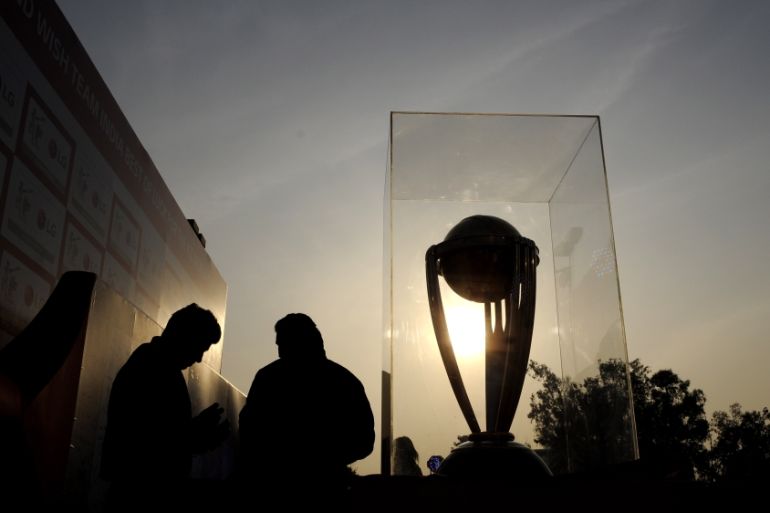Will be tough to fix World Cup matches – ICC chief
Best prepared we have ever been, says the ICC chief ahead of the global event that starts next month in Aus and NZ.

The chief executive of cricket’s governing body believes it will be tough for anyone outside the game to fix matches during next month’s 50-over World Cup in Australia and New Zealand.
David Richardson added that the International Cricket Council (ICC) would clamp down hard on bad behaviour in the tournament by the players.
Keep reading
list of 4 itemsJadeja reaches IPL cricket milestone in Chennai’s win over Kolkata
Sri Lanka beat Bangladesh by 192 runs to sweep Test series 2-0
Ben Stokes to miss T20 World Cup to work on bowling fitness
There have been several cases of corruption in the sport in recent years.
Pakistan have been hit the hardest with former captain Salman Butt, pacemen Mohammad Amir and Mohammad Asif and leg-spinner Danish Kaneria all banned for fixing in the last four and a half years.
Our anti-corruption personnel have done a lot of work in entering into agreements, associations and arrangements with the local police and law enforcement agencies
“On the corruption side it’s safe to say we’re the best prepared we’ve ever been,” Richardson said in an ICC interview.
“Our anti-corruption personnel have done a lot of work in entering into agreements, associations and arrangements with the local police and law enforcement agencies in New Zealand and Australia.
“Our intelligence and information on who these corruptors are, and who may try and fix matches around the world, has grown. We know exactly where these people are and we have got a list of more than a hundred names we will be passing on to these law enforcement agencies,” added Richardson.
“It will be very difficult for anybody outside of the game to come and even attempt to try and corrupt players, umpires or anybody involved in the World Cup, to try and fix a match.”
The former South Africa wicketkeeper-batsman, who played in the World Cup the last time it was hosted by Australia and New Zealand in 1992, said match-fixing or trying to rig games was now regarded as a criminal offence by the two host nations.